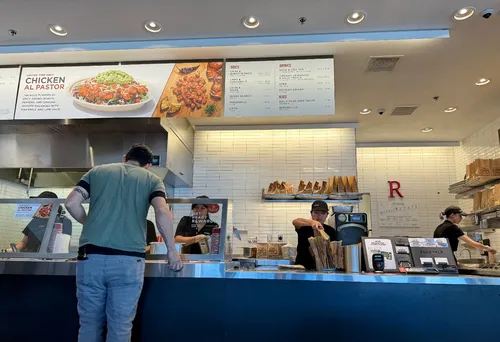
More than half a million network workers fast food in California, in the United States, they started the month of April with the prospect of a higher salary.
The reason is that, on the first day, the new state minimum wage came into effect for those who work in these establishments. The rate is US$20 an hour (about R100), US$4 above the state’s general minimum wage.
“A lot of people will say ‘wow, it’s $20’. Yes. But these days in California, we all know that $20 an hour is still too little to pay rent,” says Julieta Garcia, who works at a branch of Pizza Hut.
Julieta says she pays more than US$2,200 a month just to rent a one-bedroom apartment. “The US$20 is still too little for our survival,” she says.
A victory for the trade union movement
In addition to working at the Pizza Hut chain, Julieta is part of the Union of Workers of Fast Food from California. It was thanks to their mobilization that, at the end of last year, Governor Gavin Newsom (Democrat) signed the law that authorized the increase in salaries.
California is an extremely expensive state, but the $4 an hour increase is no small feat. For those who work 40 hours a week, the monthly increase is almost US$700, corresponding to R$3,500.
“There’s no doubt it’s an improvement,” historian and political scientist Steve Ellner told Brazil in fact, “and I think we should contextualize it. The US labor movement has been heating up over the last 2-3 years. There have been strikes in places and professions that no one could imagine before.”
Erick Salvador, who works at McDonald’s, is happy with the increase: “The increase means a lot, because for the work we have here, we are trying hard and all the work here is hard. And I think the increase I received previously was US$16.75 and now that it has reached US$20 it helps us a lot.”
Companies fight back
The reaction from companies was quick. An ice cream chain and another pizzeria chain closed stores in some parts of the state. Other chains, such as Starbucks, announced price increases from the first day onwards. Companies claim that the new minimum wage will weigh on consumers’ pockets.
“It’s been like this since the beginning of unions,” says Ellner. “Companies always say that the increase will be passed on to the consumer. And that is, at best, a half-truth. Because as much as you have monopolies, the system is based on oligopolies, which means little competition… still there is competition. In capitalism there are always different forms of competition.”
In practice, this means that a company cannot increase prices drastically from one moment to the next, otherwise it will lose part of its clientele.
This is not the first time that companies have reacted to labor gains with threats to close their doors. In recent decades, much of the US manufacturing sector has closed factories and moved production to other countries. In the case of the services industry, however, this is not a possibility.
“With regard to the food sector, the story is different. Because you don’t have a national market, but a local market. So companies like McDonald’s and Wenddy’s, etc., don’t have that option,” says Steve Ellner.
Editing: Rodrigo Durão Coelho

Source: www.brasildefato.com.br

